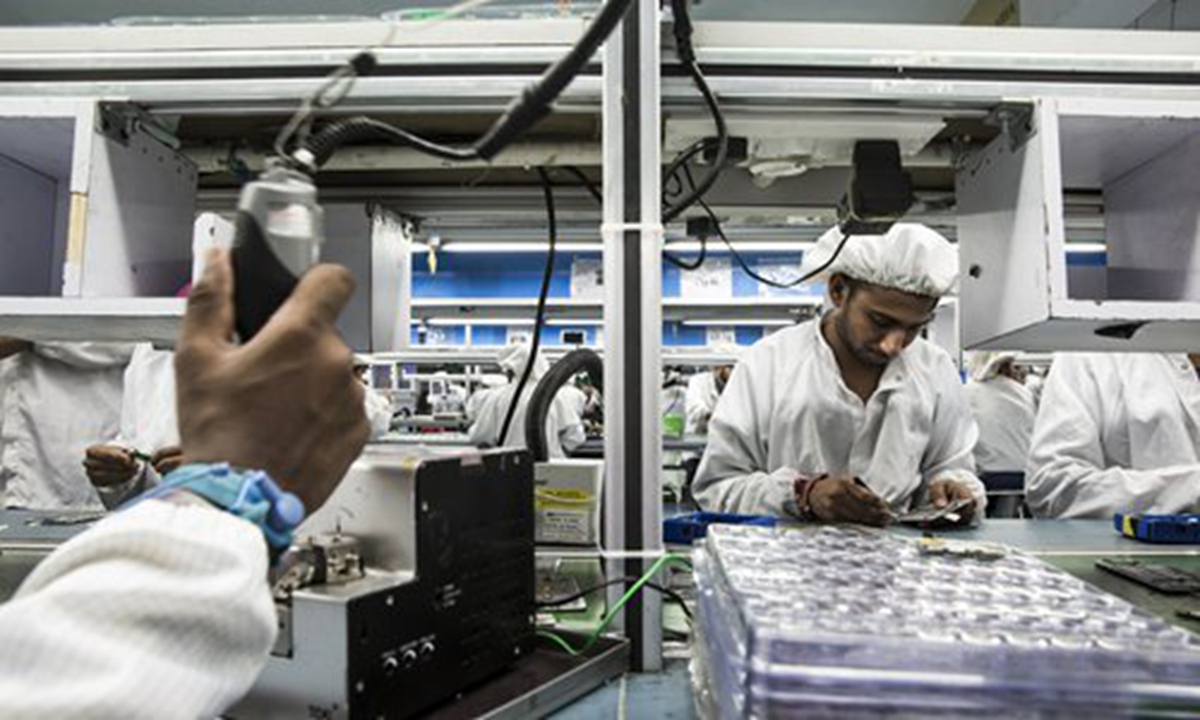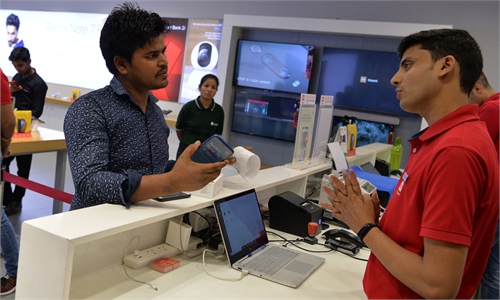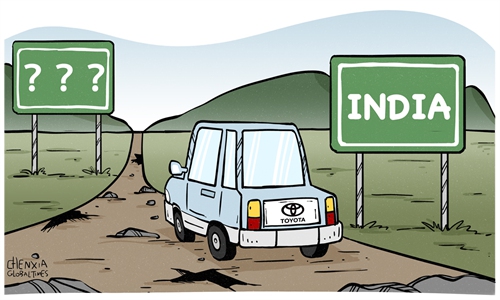
A view of a production line of a smartphone factory in India. Photo: VCG
Without confirmation from Apple Inc, some Western media outlets reported that the US technology company is preparing to recalibrate its iPhone 14 production between China and India. The Wall Street Journal assumed in a report that the company is boosting production outside its traditional base of China to reduce dependence on the country.Collaborating with the US' suppression on China, the Western media have long been hyping up the transfer of production lines by foreign companies such as Apple from China, the global manufacturing center, to countries such as India. Such media reports indicate that India could one day replace China as the world's largest mobile phone manufacturer.
What these Western propaganda machines are reluctant to admit is that the root cause of the potential risks to multinationals such as Apple is the US' decoupling approach and its playing geopolitical games. In fact, China has never posed the slightest risk to the American company's production, and China has been Apple's largest consumer market and largest production base for a long time.
Some in the West have been exaggerating the competition between India and China in the manufacturing field, but in fact, China-India economic and trade cooperation is far greater than competition. Deepening cooperation between China and India in the supply chain will bring greater benefits to each other's economies. China and India will not fall into this comparison trap. India will never be a source of threat to China's mobile phone manufacturing capacity.
"Make in India" and "Made in China" are not zero sum. For "Make in India", which is still in the stage of rising and catching up, it is going through the similar situation as "Made in China" in some aspects. China should view this with an objective attitude, and India should also view its own advantages and challenges rationally and objectively.
Indeed, India is heading towards becoming the world's most populous nation soon, which brings a demographic dividend and may come up with a market that may have strong purchasing power. However, looking at the mobile phone market, Apple's shipments in India are not high. Although India's smartphone exports are on the rise, they are still far lower than China's.
The Wall Street Journal quoted analysts as saying that more than 90 percent of Apple's products are produced in China. In India, one challenge for Apple is to find the amount of skilled labor that is readily available in China. India's ports, roads and infrastructure also lag far behind those in China.
For all the talk in Western media of reducing reliance on Chinese manufacturing, China has, actually, in the past two years consolidated its position as the world's dominant supplier of manufactured goods.
There is great potential for China-India manufacturing cooperation. China's goal is to transform into technology-driven giant economy and move up the global value chain. India's industrialization path may shift to market-driven and factor-driven, creating more employment opportunities, giving full play to the advantages of demographic dividends, and stimulating its economic growth.
The differences in the development stages of manufacturing and production in China and India provide an opportunity for broader cooperation. The two sides can take advantage of India's labor cost advantage and China's capital and technological advantages to jointly improve the development level of their manufacturing capability, and achieve mutual benefit and common development.
Therefore, China and India should join efforts in the formation of a large manufacturing regional cluster in Asia that accommodates East Asia, Southeast Asia and South Asia, which is not only conducive to the development of China-Indian relations and the formation of the "Asian Century," but also it will help to improve the ability of global industrial chain layout and promote the process of regional integration and globalization.
The author is a reporter with the Global Times. bizopinion@globaltimes.com.cn



